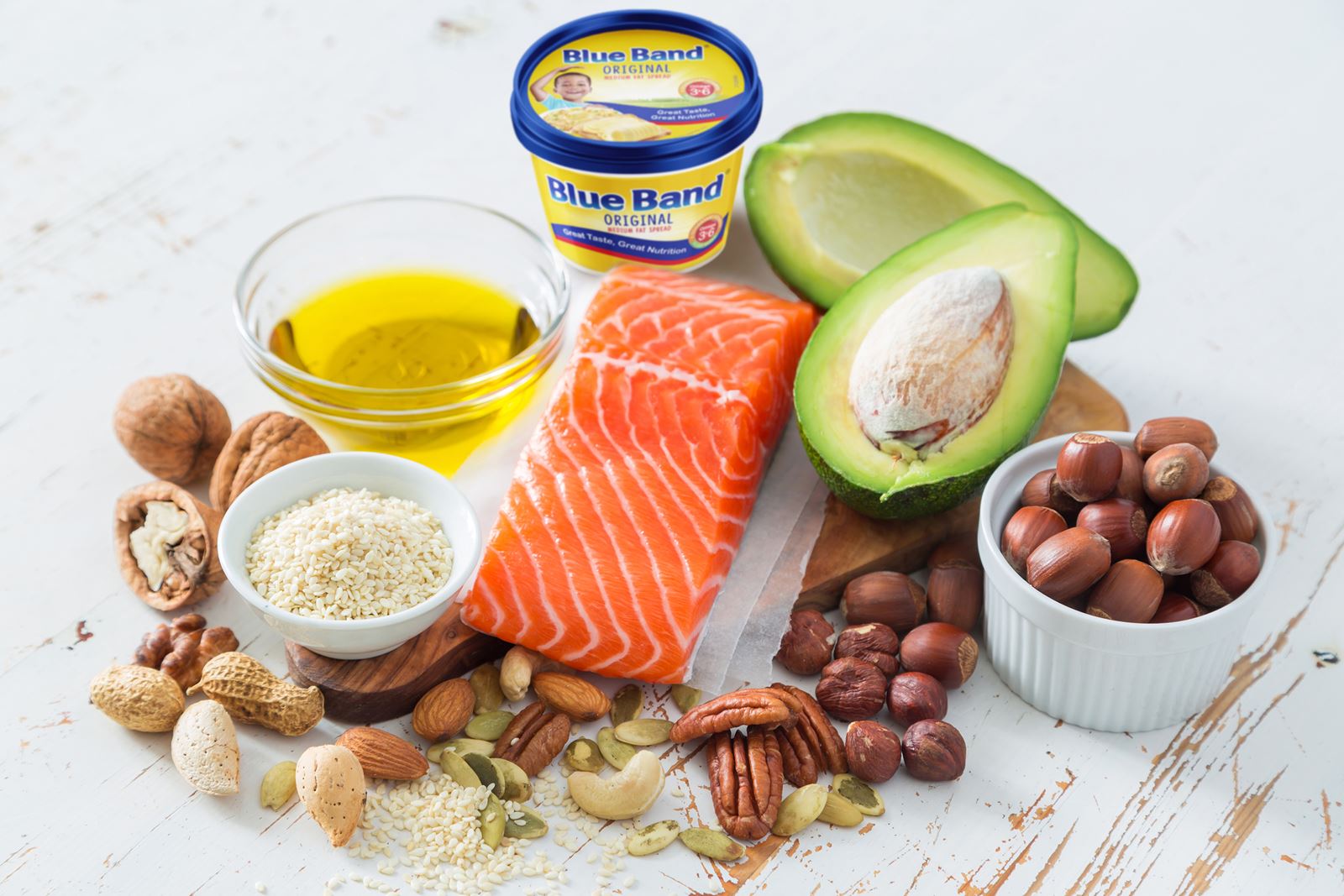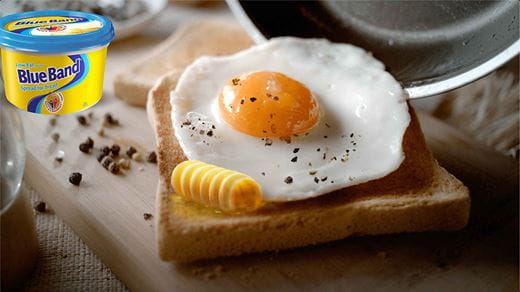
Breakfast is an important meal of the day. It is generally recommended by several dietary guidelines that 15 to 25 % of recommended daily requirement for nutrients (vitamins and minerals) and energy should come from breakfast. In addition, the amount and type of fats as well as sugar and sodium should be in line with recommendations from the World Health Organization(35). Food based dietary guidelines are developed to help people choose an adequate diet. These guidelines are based on existing consumption of locally available foods and aims to address nutrition-related public health problems. Like for total diets, it is recommended to combine a variety of foods from the different food groups of the food-based dietary guidelines into breakfast.
Breakfast should be commonly based on starchy foods (for example brown bread or whole grain porridge), which should be combined with a hot beverage such as tea with milk, or a portion of milk or other source of protein. Furthermore, it is important to also add a variety of fruits or some vegetables, because these are rich sources of different vitamins and minerals including vitamin C and A, folic acid, potassium, and fibre. In addition, to help get more good fats, it is recommended to add some spread with Omega 3 and 6 fats and fatsoluble vitamins such as margarine.
Therefore, a good breakfast will deliver required nutrients to start the day such as carbohydrates, good fats (Omega 3 and 6), proteins, water soluble and fat-soluble vitamins, and minerals. The food choices for breakfast will depend on what is locally available and accessible. Examples of a good breakfast for Kenyan children could contain local staple foods like sweet potatoes, boiled cassava, boiled arrow root, whole grain chapatti, legumes and nuts, whole grain porridge with some margarine, a fried or boiled egg, whole meal bread spread with margarine, milk (cow, camel, goat, soya) yoghurt, a cup of tea with milk and seasonal fruits.
-
What is margarine or a fat spread made of?Margarine or fat spreads are made of three main ingredients: carefully selected carefully selected vegetable oils, water and salt. Including some minor permitted food additives.
-
Is it correct that butter is a natural product and margarine, or a fat spread is not natural?
No that is not correct, margarine is largely made from vegetable oils.
-
Is it true that margarine is one molecule away from plastic?
No, the major ingredients in spreads are fat and water. Chemically, plastic has a completely different molecular structure than the unsaturated and saturated fats present in spreads or butter. Spreads are nutritious and safe and have been part of a healthy diet for years. Planta is a safe product that follows the guidelines of the Ministry of Health and has been part of a healthy and balanced diet for a long time.
-
What is the history of margarine?Margarine was developed over a 100 years ago as butter alternative by a French food chemist called Hippolyte Mege-Mouries. France was experiencing a butter shortage and Napoleon offered a prize for a butter substitute that could be spread on bread.
-
What are the benefits of margarine or a fat spread?They can be used as spread, topping, and dressing and even for cooking and baking. Margarine or a fat spread are made from selected vegetable oils and have the nutritional benefits of these plant oils. They are often a source of essential fats an can provide 9 essential vitamins, namely Vitamins A, D, E, B1, B2, B6, B12, Folic Acid and Niacin. For more info see ''Margarine and a balanced diet''.
-
What is hydrogenation of fat?Hydrogenation is the process by which liquid oils are converted in to firmer fats. This process is well established and used all over the world to enable the use of vegetable oil in producing various products.
The process of hydrogenation is similar to the biohydrogenation, which takes place in the digestive system of ruminant animals such as cows."
Should we avoid hydrogenated fats?
Only partial hydrogenation leads to the formation of trans-fats. However, fully hydrogenated oils hardly contain any trans-fats. Planta contains virtually no trans-fat.
-
What is the difference between butter and margarine or fat spreads?Margarine or fat spreads are plant-based spreads. They are predominantly made of plant oils and plant-based fats. Butter is a fully animal-based product, made from milk fat.
-
Is it true that margarine can only be made in a factory?On big scale, margarine is made in factories. However, you can also make it at home. Making margarine is basically a process of mixing and cooling.
-
Does margarine or a fat spread contain trans fat?
No. Saturated and trans fat can increase the LDL (bad) cholesterol levels and transfats also lower the HDL (good) cholesterol levels. High cholesterol is a risk factor for the development of cardiovascular diseases. International health authorities such as the World Health Organization recommend replacing saturated fats by unsaturated fats and limit the intake of transfat <1% of total energy intake. Replacing saturated fat and trans fats with unsaturated fats, especially polyunsaturated fats, has a favourable effect on the blood lipid profile, and can reduce (bad) LDL cholesterol levels. -
Does margarine or fat spreads increase the LDL (bad) cholesterol and lower the HDL (good)cholesterol?No. Saturated and trans-fat can increase the LDL (bad) cholesterol levels and transfats also lower the HDL (good) cholesterol levels. High cholesterol is a risk factor for the development of cardiovascular diseases. International health authorities such as the World Health Organization recommend replacing saturated fats by unsaturated fats and limit the intake of transfat <1% of total energy intake. Replacing saturated fat and trans fats with unsaturated fats, especially polyunsaturated fats, has a favourable effect on the blood lipid profile, and can reduce (bad) LDL cholesterol levels.
-
Why do we need to eat fat? Is it good or bad?Fat is recommended as part of a balanced diet. Up to 30% of our daily calorie intake should be represented by fat. Dietary fats are needed for several reasons. They provide energy, help to carry fat-soluble vitamins (like vitamin A, D and E), are building blocks of body cells, contribute to the feeling of satiety and they make foods palatable and tasty.
-
Why do children need dietary fats?Dietary fats are needed for several reasons. They provide energy, help to carry fat-soluble vitamins (like vitamin A, D and E), are building blocks of body cells, contribute to the feeling of satiety and they make foods palatable and tasty. Some fat sources also deliver essential fats which are needed for normal growth and development of children.
-
What are trans fats?Trans fats are created naturally in the intestine of ruminants and can be also industrially produced by partial hydrogenation of plant oils. The existence of trans fats from partial hydrogenation has significantly decreased over the past 10-15 years. Planta is not using partial hydrogenated fats in the formulation of our products. Trans fats raise the bad (LDL) cholesterol levels and lower good (HDL) cholesterol levels. Eating trans fats can increase the risk of developing heart diseases. Trans fat intake should be as low as possible, <1% of daily calorie intake.
-
What are saturated fats?Saturated fats are fat molecules without double bonds between carbon molecules in the fatty acid chain. Saturated fats are typically solid at room temperature.
-
Are saturated fats bad fats?From a health perspective, saturated fats (SAFA) are called “bad” fats because they have been shown to increase blood cholesterol (which may increase the risk of cardiovascular disease). The World Health Organization recommends a saturated fat intake of less than 10% of daily calorie intake.
-
What are unsaturated fats?Unsaturated fats are fat molecules with one or more double bonds between carbon molecules in the fatty acid chain. There are two main types of unsaturated fat, monounsaturated and polyunsaturated fat.
Unsaturated fats help maintain a good LDL cholesterol level. For this reason, we must eat them as part of a healthy diet. -
What food sources contain unsaturated fats?Most food contains a mixture of different fats.
Examples of foods containing higher amounts of monounsaturated fats:
Fish, avocados, olive oil, spreads based on these oils, hazelnuts, almonds, cashews, peanuts, pecans and pistachios.
Examples of foods containing higher amounts of polyunsaturated fats:
Vegetable and seed oils, such as canola, sunflower, soybean, peanut and sesame oils, soft spreads, liquids and mayonnaise based on these oils, walnuts, pecans peanuts, sunflower seeds, salmon, mackerel, sardines and some varieties of tuna.
-
Why should I use margarine or fat spreads instead of just the oils?Spreads are made from a selected blend of vegetable oils and have the nutritional benefits of these oils. Spreads can also deliver vitamins like 9 essential vitamins, namely Vitamins A, D, E, B1, B2, B6, B12, Folic Acid and Niacin, since spreads are often fortified with vitamins.
-
Why do they say the oils in margarine or fat spreads contain no cholesterol?
Margarine or fat spreads are made with plant and seed oils which naturally do not contain cholesterol. Butter is fat derived from animals and contains cholesterol.


.png?h=52&iar=0&w=52&rev=-1)



